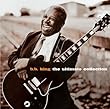 Vandross’s background singers—some of the industry’s best—are his true human witnesses, his most impressive collaborators. (I imagine some of his background singers may think they are responsible for Luther Vandross’s success.) Vandross’s sensibility and voice—a sensibility and voice created out of choices, influences, and ambitions—are so unique that the otherworldly music that accompanies him may be absolutely necessary.
Vandross’s background singers—some of the industry’s best—are his true human witnesses, his most impressive collaborators. (I imagine some of his background singers may think they are responsible for Luther Vandross’s success.) Vandross’s sensibility and voice—a sensibility and voice created out of choices, influences, and ambitions—are so unique that the otherworldly music that accompanies him may be absolutely necessary.
The Force Behind The Power: Jazz, Joy, and Social Vision in the Work of Diana Ross
 My reconsideration of Ross and Stolen Moments has been not only aesthetic and intellectual. In a time of personal trouble, I found she was one of the few singers I could listen to, and that the joy in her work gave me comfort. Pleasure is usually circumstantial and momentary, but joy is usually rooted in something deeper—a sense of self, great belief, a tested system of thought, love, and even trusted and proven community. Is there anything wiser than joy?
My reconsideration of Ross and Stolen Moments has been not only aesthetic and intellectual. In a time of personal trouble, I found she was one of the few singers I could listen to, and that the joy in her work gave me comfort. Pleasure is usually circumstantial and momentary, but joy is usually rooted in something deeper—a sense of self, great belief, a tested system of thought, love, and even trusted and proven community. Is there anything wiser than joy?
Frank Sinatra’s Classic Sinatra: His Great Performances, 1953-1960
Conversational, direct, lively, rhythmic, with an intelligent deployment of varied tones: that is Sinatra in Cole Porter’s “I’ve Got You Under My Skin.” (What is it about Porter that liberates? The sophistication? The sexiness? Everything?)
In the Margins, Truth: Ani DiFranco’s Carnegie Hall 4-6-02 and Reprieve
 The fact is that there’s not much consistently intelligent political comment in popular music, and I do like much of what I hear in her work. She remembers things that others forget, even though those things are very important. She reads her own poetry, which contain significant perceptions and well-known politically progressive ideas, and she also reads the poetry of Judy Grahn.
The fact is that there’s not much consistently intelligent political comment in popular music, and I do like much of what I hear in her work. She remembers things that others forget, even though those things are very important. She reads her own poetry, which contain significant perceptions and well-known politically progressive ideas, and she also reads the poetry of Judy Grahn.
3 New Orleans Musicians: Fats Domino, Louis Armstrong, and Aaron Neville
Fats Domino is a man who wants to be the only lover of a particular young woman in “All By Myself,” an attitude that seems friendly and self-possessed, without torment, without undue force (I imagine a contemporary version would be…
Whimsy, Sweetness, & Tears: The Music of Corinne Bailey Rae
 Corinne Bailey Rae’s songs have an infectious romanticism. One recognizes the romanticism—the dreamy lack of realism—and still feels seduced by Rae’s hopeful emotions and evocative situations.
Corinne Bailey Rae’s songs have an infectious romanticism. One recognizes the romanticism—the dreamy lack of realism—and still feels seduced by Rae’s hopeful emotions and evocative situations.
The Thrills Are Here: B.B. King’s The Ultimate Collection
 B.B. King, born September 16, 1925, in the Mississippi Delta, is the king of the blues. His anthology The Ultimate Collection is as good an introduction to the blues as any: and what is notable is the fact that it gives pleasure.
B.B. King, born September 16, 1925, in the Mississippi Delta, is the king of the blues. His anthology The Ultimate Collection is as good an introduction to the blues as any: and what is notable is the fact that it gives pleasure.
Boyish Intensities: Dashboard Confessional’s Dusk and Summer
 There’s a calculated roughness to “Rooftops and Invitations.” It’s interesting that the first songs on the album are fast and loud, and the later songs begin to be slower, more quiet, as if a point was being made with the first songs (the point?—the proof of masculinity).
There’s a calculated roughness to “Rooftops and Invitations.” It’s interesting that the first songs on the album are fast and loud, and the later songs begin to be slower, more quiet, as if a point was being made with the first songs (the point?—the proof of masculinity).
Elegant Rock (Or, Impressing Posterity): The Best of Morrissey and Ringleader of the Tormentors
:format(jpeg):mode_rgb():quality(40)/discogs-images/R-542847-1381650419-8218.jpeg.jpg) Steven Patrick Morrissey is now middle-age. In a culture that does not worship youth so much as pander to it—with all the contempt and desperation and envy that suggests—it is interesting to observe people who are aging well: still feeling, still thinking, still creating, still growing.
Steven Patrick Morrissey is now middle-age. In a culture that does not worship youth so much as pander to it—with all the contempt and desperation and envy that suggests—it is interesting to observe people who are aging well: still feeling, still thinking, still creating, still growing.
A review of February Flowers by Fan Wu
The moment of transformation comes late in the novel, and is handled so subtly that it is easy to miss. Nevertheless the reader is left with a satisfying conclusion that doesn’t limit the story with overt sensationalism. February Flowers is a beautifully…